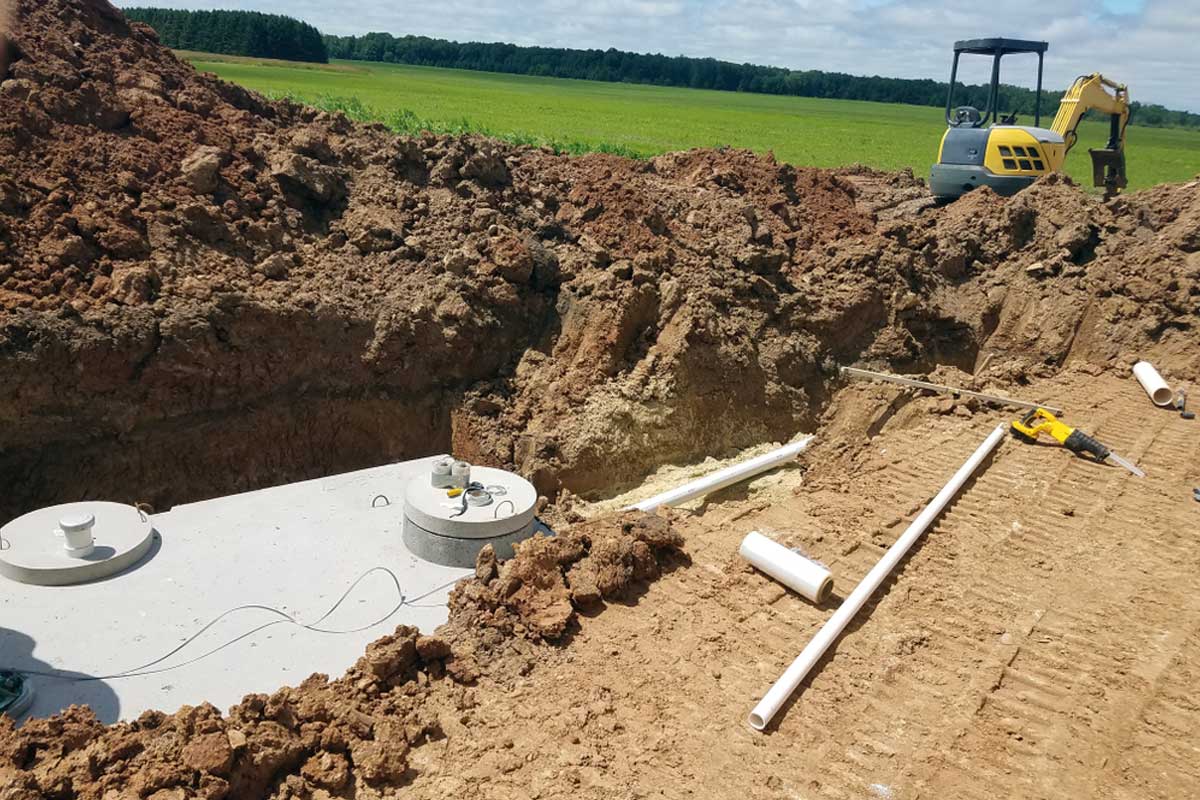If you own a house or business that is not connected to the municipal sewer system, you likely have a septic system in place to manage your waste. Although septic systems are efficient and green way to handle wastewater, they will require regular maintenance and could eventually require replacement. This article will offer all the information you need to know about managing the costs associated with septic systems for installation and replacement.

The cost of a Septic System Installation
While a septic tank install is costly but it is vital to ensure that the wastewater that is discharged from your property is treated appropriately and safely. The price of an installation of a septic tank can differ widely based on a variety of aspects, such as:
Property size: Larger properties require larger septic systems to accommodate increased wastewater output. Larger properties will require larger and more expensive septic systems.
The size of your septic tank will be influenced by the amount of bedrooms. New Hampshire requires a minimum of three bedrooms to be fitted with a 1,000-gallon tank. Each additional bedroom will need 250 gallon.
Site conditions: The topography of your property and also the type of soil and its permeability, will affect the price of installation. Higher-stakes terrain or more challenging soil conditions might require extra excavation or the use of specialized equipment. This may increase the total cost.
Zoning requirements and permits: The requirements for zoning and permits can differ between states and from one to another. There may be a need to pay extra fees for permits and inspections.
The average cost for the New Hampshire septic system installation is between $5,000 and $10,000 based on the factors mentioned above. It is essential to note that this is only an estimate and that every case will have a different final cost.
Repair costs for septic systems
Septic systems last between 20 and 40 years, depending on how well they are maintained and used. Once a septic system starts to fail, it’s typically more cost-effective to replace it completely rather than attempting to fix it. The indicators that your septic unit might require replacement are slow drains or standing water in your yard, and drainage issues.
The cost of the replacement of a septic tank will depend on many factors such as the size of your home and the number of bedrooms you have and the conditions in which you live. Because the system needs to be properly removed and disposed, a replacement system for a septic tank will usually cost more than a new installation.
On average, the price for a replacement septic system in New Hampshire ranges from $10,000 to $25,000, contingent upon the above-mentioned factors. It is important to keep in mind that this is only an estimate and that every situation will have a different final price.
Tips to manage the cost of your septic system
Regular maintenance: Regularly maintaining your Septic system, including pumping and inspection, will extend its lifespan and avoid costly repairs or replacements.
Pick the right contractor Choosing a reputable and experienced contractor can assure that your septic system is properly installed and in line with code, saving your money on expensive repairs or fines for non-compliance.
Don’t flush products that are not biodegradable. The flushing of nonbiodegradable products like diapers or wipes for sanitary purposes can lead to an obstruction in your septic system, which could lead to costly backups.
Conserve water: Conserving water can decrease the burden on your septic system , and also extend its lifespan.
Find the ideal system for you Choose a septic system suitable for your home will lower the cost of installation and ongoing maintenance.
A proper septic tank maintenance program is crucial to keep your system healthy and operational. Maintaining a septic tank can be a money-saving option and can help you avoid costly repairs and decrease the chance of contamination of the groundwater. Additionally, it helps stop odors and backups. Regular pumping is a great way to improve the efficiency of your system and stop costly damage that can be caused by cracks or clogs. It is essential to engage in regular inspections to identify possible issues early. Implementing these measures will help you maintain a safe and efficient septic system that is up to the standards of environmental protection. A detailed maintenance plan for your tank can help you save time and money in the long run. It will also give you peace of mind that your residential or commercial property will have a functioning systems for decades to come.
For more information, click cost to install septic tank and leach field